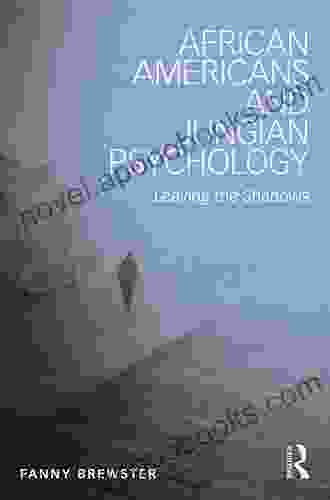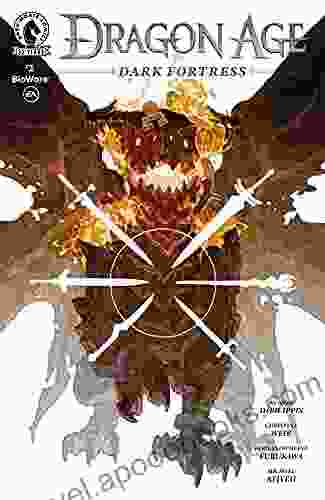African Americans and Jungian Psychology: Leaving the Shadows

In the tapestry of human consciousness, the works of Carl Jung have left an indelible mark, providing a profound framework for exploring the depths of the psyche. While Jung's influence has been widely recognized in Western psychology, its impact on African Americans has remained largely unexplored. African Americans and Jungian Psychology: Leaving the Shadows seeks to illuminate this hidden chapter, shedding light on the transformative power of Jungian psychology in addressing the unique experiences and challenges faced by African Americans.
Edited by renowned Jungian analysts Dr. Hugh B. Price and Dr. Patricia A. Thompson, this groundbreaking volume brings together a diverse group of scholars, clinicians, and artists who delve into the intricate relationship between Jungian psychology and African American identity. Through a series of thought-provoking essays, personal narratives, and case studies, the authors explore the ways in which Jungian concepts and techniques can facilitate healing, empowerment, and self-discovery for African Americans.
4.6 out of 5
| Language | : | English |
| File size | : | 625 KB |
| Text-to-Speech | : | Enabled |
| Screen Reader | : | Supported |
| Enhanced typesetting | : | Enabled |
| X-Ray for textbooks | : | Enabled |
| Word Wise | : | Enabled |
| Print length | : | 153 pages |
At the core of this book lies a profound understanding of the collective unconscious, a realm where universal archetypes and symbols reside. Jung believed that these archetypes play a significant role in shaping our thoughts, emotions, and behaviors. However, for African Americans, the collective unconscious is often imbued with layers of historical trauma, systemic oppression, and cultural resilience. The authors in this book explore how Jungian psychology provides a lens through which to examine these collective shadows and uncover the hidden strengths and wisdom that lie within.
One of the key themes running throughout the book is the concept of individuation, a process of psychological development that involves embracing both the light and dark aspects of the self. For African Americans, individuation may involve confronting the internalized racism and self-limiting beliefs that have been imposed upon them. The authors offer practical insights and case studies that demonstrate how Jungian techniques, such as dream analysis, active imagination, and sandplay therapy, can support this process of self-discovery and liberation.
Beyond its clinical applications, African Americans and Jungian Psychology also examines the broader cultural and societal implications of this work. The authors discuss the ways in which Jungian psychology can contribute to the healing of racial wounds and the fostering of a more inclusive and equitable society. They also explore the role of African American Jungian analysts as agents of change, using their unique perspectives to challenge traditional psychological norms and advocate for the mental health and well-being of their communities.
One of the strengths of this book is its multifaceted approach, which combines academic rigor with personal narratives and clinical insights. The essays are written in a clear and accessible style, making them approachable to both scholars and general readers. The inclusion of personal stories and case studies adds a human dimension to the discussion, allowing readers to connect with the transformative power of Jungian psychology on a more intimate level.
In the concluding chapter, the editors offer a powerful call to action, urging readers to embrace the transformative potential of Jungian psychology and to use it as a tool for personal growth, social justice, and collective healing. They emphasize the importance of creating safe and inclusive spaces where African Americans can explore their inner worlds and discover the richness that lies within.
African Americans and Jungian Psychology: Leaving the Shadows is a groundbreaking and timely work that fills a significant gap in the field of psychology. It offers a unique and invaluable perspective on the transformative power of Jungian psychology in addressing the unique experiences and challenges faced by African Americans. This book is essential reading for Jungian analysts, clinicians, scholars, and anyone seeking a deeper understanding of the intersection between race, identity, and the human psyche.
In the words of Dr. Hugh B. Price, "This book is a testament to the courage, resilience, and brilliance of African American Jungian analysts who have dared to explore the depths of the human psyche and to illuminate the hidden strengths and wisdom that lie within our communities. It is our hope that this work will inspire and empower others to embrace the transformative potential of Jungian psychology and to use it as a force for positive change in the world."
4.6 out of 5
| Language | : | English |
| File size | : | 625 KB |
| Text-to-Speech | : | Enabled |
| Screen Reader | : | Supported |
| Enhanced typesetting | : | Enabled |
| X-Ray for textbooks | : | Enabled |
| Word Wise | : | Enabled |
| Print length | : | 153 pages |
Do you want to contribute by writing guest posts on this blog?
Please contact us and send us a resume of previous articles that you have written.
 Book
Book Novel
Novel Page
Page Chapter
Chapter Text
Text Story
Story Genre
Genre Reader
Reader Library
Library Paperback
Paperback E-book
E-book Magazine
Magazine Newspaper
Newspaper Paragraph
Paragraph Sentence
Sentence Bookmark
Bookmark Shelf
Shelf Glossary
Glossary Bibliography
Bibliography Foreword
Foreword Preface
Preface Synopsis
Synopsis Annotation
Annotation Footnote
Footnote Manuscript
Manuscript Scroll
Scroll Codex
Codex Tome
Tome Bestseller
Bestseller Classics
Classics Library card
Library card Narrative
Narrative Biography
Biography Autobiography
Autobiography Memoir
Memoir Reference
Reference Encyclopedia
Encyclopedia Pj Spivack
Pj Spivack Sir Reed A Lott
Sir Reed A Lott Remo Moretto
Remo Moretto Richael Barger Anderson
Richael Barger Anderson Sebastian A Jones
Sebastian A Jones Sophie Boyron
Sophie Boyron Scott E Buchanan
Scott E Buchanan P M S Hacker
P M S Hacker Rhonda Lee Carver
Rhonda Lee Carver Walter Gibson
Walter Gibson Norman Page
Norman Page Nicole Trope
Nicole Trope Owen Hatherley
Owen Hatherley Peter Baker
Peter Baker Patricia Bell Scott
Patricia Bell Scott Paula Marantz Cohen
Paula Marantz Cohen Osamu Tezuka
Osamu Tezuka Chris Bryant
Chris Bryant Stefanie Bridges Mikota
Stefanie Bridges Mikota Olga Barabanova
Olga Barabanova
Light bulbAdvertise smarter! Our strategic ad space ensures maximum exposure. Reserve your spot today!

 Roger TurnerUnveiling the Museum of Innocence: A Literary Odyssey into Love, Loss, and...
Roger TurnerUnveiling the Museum of Innocence: A Literary Odyssey into Love, Loss, and... Ralph Waldo EmersonFollow ·5.8k
Ralph Waldo EmersonFollow ·5.8k Leo TolstoyFollow ·3.9k
Leo TolstoyFollow ·3.9k Nikolai GogolFollow ·11.3k
Nikolai GogolFollow ·11.3k Herman MelvilleFollow ·7.9k
Herman MelvilleFollow ·7.9k Stan WardFollow ·5.5k
Stan WardFollow ·5.5k Branson CarterFollow ·2.9k
Branson CarterFollow ·2.9k Walter SimmonsFollow ·11.1k
Walter SimmonsFollow ·11.1k Derek BellFollow ·14.4k
Derek BellFollow ·14.4k

 Shaun Nelson
Shaun NelsonUnlocking the Intricate Nexus: The Globalization and the...
In an era marked by...

 Robin Powell
Robin PowellLast Summer at the Golden Hotel: A Captivating Journey of...
Synopsis: A Transformative Summer at...

 Gabriel Mistral
Gabriel MistralContracts And Conmen In Europe Scramble For Africa
The late 19th and early...

 Glenn Hayes
Glenn HayesThe Story of the United States' Longest Wildcat Strike: A...
Prologue: The...

 Evan Hayes
Evan HayesBritain Empire Resistance Repression And Revolt:...
: The Tapestry of...

 Eddie Bell
Eddie BellGreen's Operative Hand Surgery: The Ultimate Guide for...
Green's Operative Hand Surgery is the...
4.6 out of 5
| Language | : | English |
| File size | : | 625 KB |
| Text-to-Speech | : | Enabled |
| Screen Reader | : | Supported |
| Enhanced typesetting | : | Enabled |
| X-Ray for textbooks | : | Enabled |
| Word Wise | : | Enabled |
| Print length | : | 153 pages |










